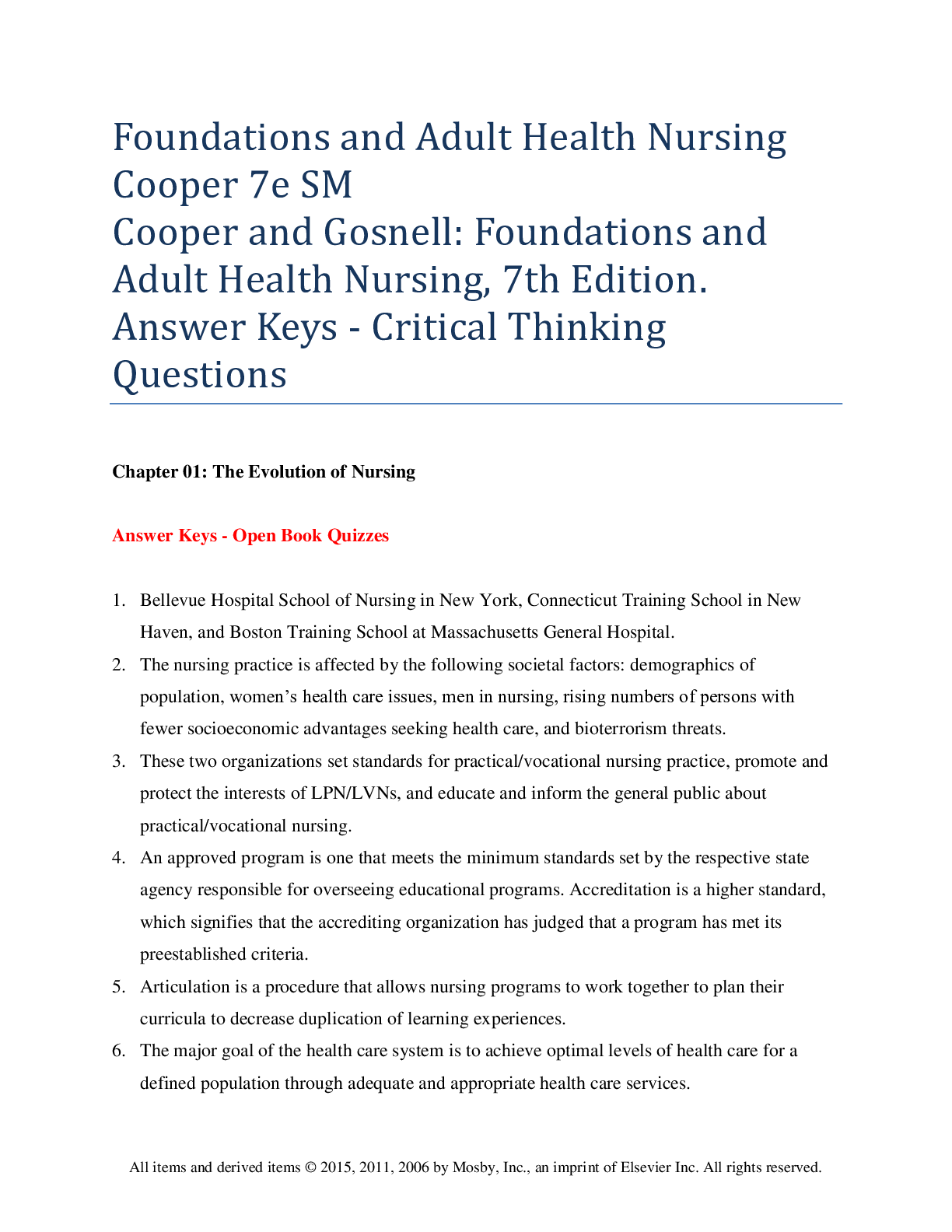*NURSING > QUESTIONS & ANSWERS > Communicable Disease Nies: Community/Public Health Nursing, 7th Edition (All)
Communicable Disease Nies: Community/Public Health Nursing, 7th Edition
Document Content and Description Below
Communicable Disease Nies: Community/Public Health Nursing, 7th Edition MULTIPLE CHOICE 1. Which infection continues to increase in the United States? a. Measles b. Pertussis c. Hepatitis A, B, ... and C d. Sexually transmitted diseases (STDs) ANS: D Treatable STDs, such as gonorrhea, chlamydia, and syphilis, are still occurring at significant rates. Gonorrhea had plateaued or declined until 2009 but increased steadily since that time. Chlamydia, the most commonly reported bacterial disease in the United States, reached 1,441,789 cases in 2014, although some of this increase is thought to be the result of improved screening for the infection, DIF: Cognitive Level: Remember (Knowledge) 2. Which best describes what is happening with infectious diseases in the United States? a. There is a continuing decrease in vector-borne infections. b. There is a continuing increase in food-borne and waterborne infections. c. Many airborne diseases are being spread by bioterrorists. d. The rate of infection varies extensively by income and ethnic groups. ANS: D NURSINGTB.COM Probably one of the most profound failures in infectious disease control in the United States and elsewhere is that the successes are not equally distributed in the general population. Infectious diseases continue to be differentially distributed by income and ethnic groups, and the poor and minorities continue to experience the greater burden. There continues to be an increase in vector-borne infections, but there has been a decrease in food-borne and waterborne infections. There is concern that deadly pathogens will be weaponized by terrorists. DIF: Cognitive Level: Understand (Comprehension) 3. Which is a fairly recent surprise regarding infectious diseases in the United States? a. Cervical cancer and coronary artery disease may be caused by infectious agents. b. Epidemics such as the H1N1 flu continue to occur. c. Mortality caused by infectious diseases continues to rise. d. Some infectious diseases remain endemic in our society. ANS: A [Show More]
Last updated: 2 years ago
Preview 1 out of 10 pages

Buy this document to get the full access instantly
Instant Download Access after purchase
Buy NowInstant download
We Accept:

Reviews( 0 )
$10.00
Can't find what you want? Try our AI powered Search
Document information
Connected school, study & course
About the document
Uploaded On
Aug 30, 2021
Number of pages
10
Written in
Additional information
This document has been written for:
Uploaded
Aug 30, 2021
Downloads
0
Views
108















 Chapter 1_63 Exam Test Questions with Complete Solutions.png)








